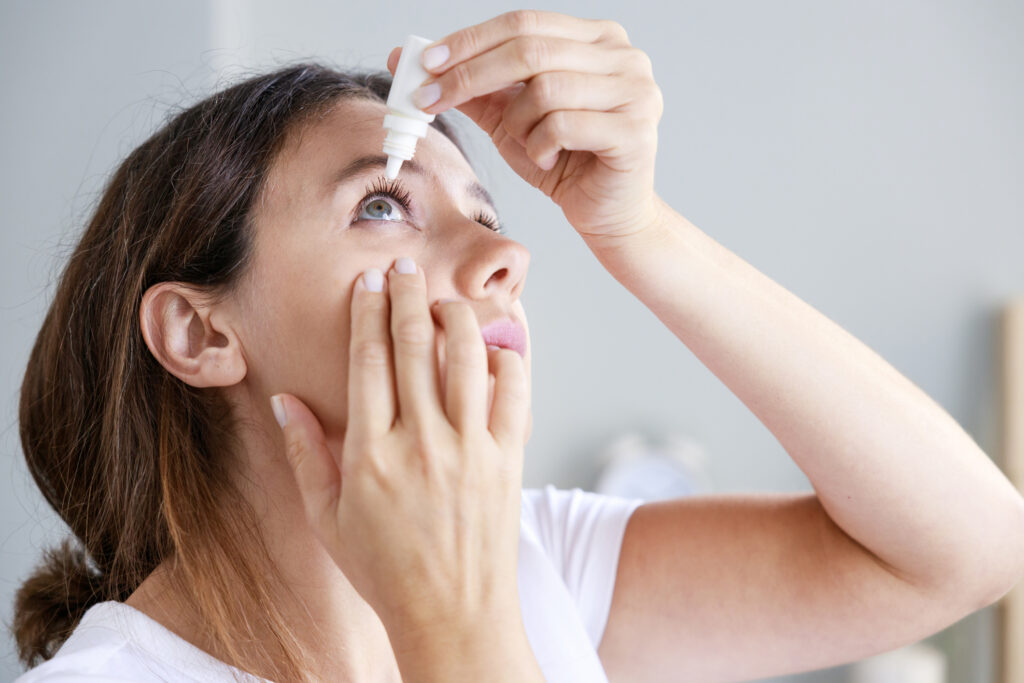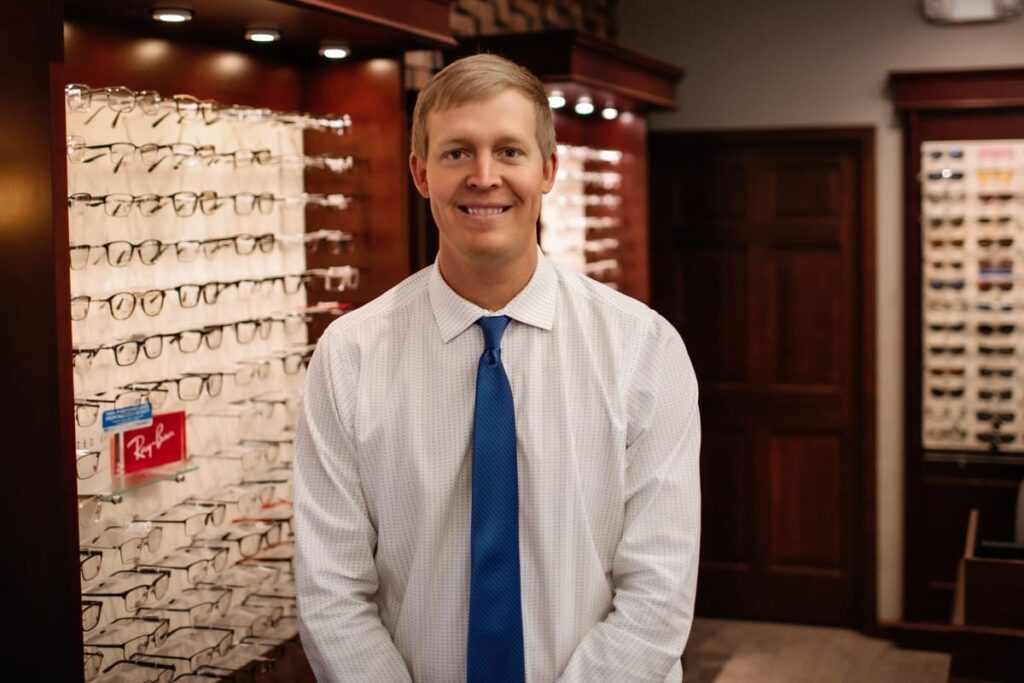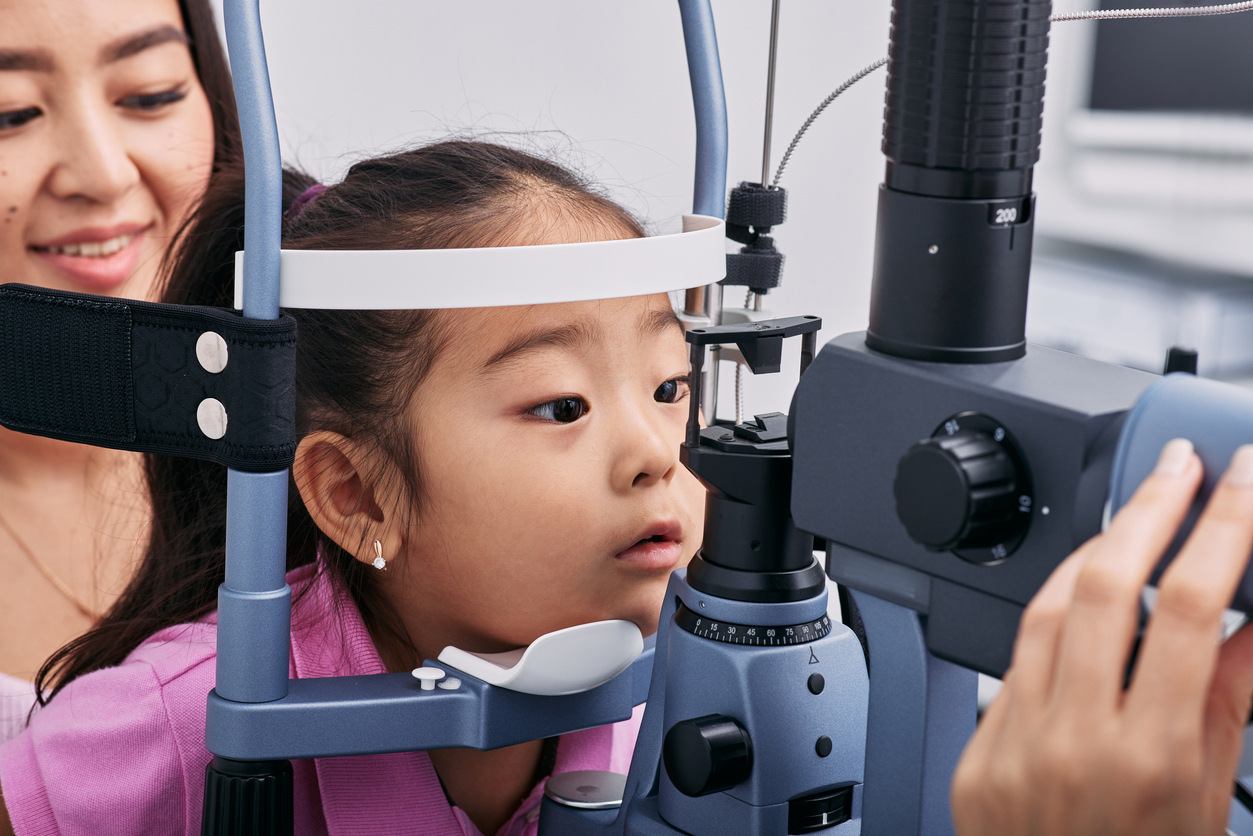You use your eyes on a daily basis for every aspect of your life. They…
What Happens If You Don’t Treat Dry Eye Syndrome?

Dry eye syndrome is a condition that results in dry eyes (listen carefully… there will be a quiz later). Eyes become dry when the tear film is destabilized. The tear film is the film of tears that covers your eyes to keep them moist and protected. The tear film can be destabilized temporarily, like when a gust of wind blows the tears out of your eyes, or the destabilization can be ongoing from other causes.
Symptoms of dry eye syndrome can include the following.
- Eyes feel dry or scratchy
- Eyes sting or burn
- Blurred vision
- Light sensitivity
- Red eyes
What Causes Dry Eye Syndrome?
Glands above the eyes and in the eyelids produce tears. If the glands don’t make enough tears, the eyes can become dry more easily and develop into dry eye syndrome over time. There are many things that can cause the tear glands to not make enough tears, including age, medical factors, and environmental reasons.
Those who are 50 years or older are more likely to develop dry eye syndrome, as well as those who are pregnant or in menopause. Low vitamin A levels are also correlated with dry eye syndrome, and so are certain health conditions that affect the immune system, such as lupus, diabetes, and thyroid issues.
Wearing contact lenses or getting laser eye surgery can cause dry eyes. Dry eyes can also be a side effect of certain medications, especially antihistamines, cold and cough medicines, allergy medications, antidepressants, and blood pressure medications. Environments that are especially windy, smoky, or dry, as well as environments with a lot of screen exposure, can also increase your chances of developing dry eye syndrome.
What Happens If Dry Eye Syndrome Isn’t Treated Properly?
Quality of Life Impacts
Physical health: Constant pain and discomfort can result in diminished physical health, especially due to poor sleep quality.
Psychological health: Dry eyes can cause fluctuating vision and disrupt visual tasks. This can have a negative effect on self esteem and body image, as well as appearance.
Environmental: You may be unable to enjoy previously enjoyable activities, like playing or watching sports.
Independence and self-sufficiency: Coping with dry eyes can cause decreased productivity and reduced performance of regular tasks. This can be especially risky for older patients, as it raises safety concerns that may interfere with independent living.
Eye Health Impacts
Infectious keratitis: Having dry eye syndrome is a risk factor for infectious keratitis, which is an infection of the cornea caused by different germs including bacteria, viruses, and fungi. This infection can result in pain and vision loss and is a leading cause of blindness. In severe cases, it is possible to lose the eye.
Corneal ulcer: A lack of tears results in the eyes being unable to stay as wet as they should be and this can cause an ulcer on the surface of the cornea. Corneal ulcers need to be treated to avoid partial vision loss or even blindness.
Corneal fibrosis: The stress from uncontrolled severe dry eyes can cause scarring on the cornea. A scar will affect vision by interfering with the passage of light into the retina. The only way to treat vision loss from corneal fibrosis is with corneal transplantation.
Headaches: Dry eyes are strained eyes and strained eyes can lead to headaches and other physical discomfort of the area near and around your eyes.
Sleep and mood disorders: Because dry eyes can lead to pain and discomfort that can impact sleep quality and quality of sleep can impact everything else, there are compelling indications that those with dry eye syndrome tend to have higher rates of depression and anxiety.

How Do You Treat Dry Eye Syndrome?
As with any medical issue, the exact treatment will depend on the specifics of your individual situation. Over-the-counter and prescription eye drops are available to help soothe and treat dry eye syndrome. Some cases may require surgery or other interventions to help keep your tears in your eyes where they belong to do their best.
Here are some simple changes you can implement to help avoid dry eyes.
- Avoid smoke (first and secondhand), wind, air conditioning, and other sources of dry air
- Limit screen time
- Remember to blink
- Take regular breaks from screens and other close-up tasks throughout the day
- The 30-10-10 rule: after every 30 minutes of screen time, look at something 10 feet away for 10 seconds
- Without exaggeration, taking the time to develop healthy screen habits is the singular most effective thing you can do to improve your overall eye health (which is why we’ve mentioned it a few times)
- Wear UV protective sunglasses outside
- Drink 8-10 glasses of water per day
- Use a humidifier at home to reduce dry air, especially during the colder months
- Sleep for 7-9 hours per night, with a big emphasis on quality sleep
Learn More About Dry Eye Syndrome at Our Open House!
We are happy to be hosting a Dry Eye/Macular Degeneration Open House at Winfield Family Optometry, sponsored by EyePromise!
On Friday, October 13th from 12:30-3:30, come learn about the latest in supplements, and the role they play in dry eye and macular degeneration. You can check out our newest technology, including the Meibography Scan, Macular Pigment Density, and IPL (Intense Pulse Light).
Call 620-221-2015 to RSVP to this event, where we will be providing free scans of eyelids and macula density. There will be two presentations given, one at 12:30, and the other at 2:00. This will give you insight on the latest technology at our practice and strategies to help dry eye syndrome and reduce the risk of macular degeneration.
Food and drinks will be provided, and we will be giving away raffle prizes. We look forward to seeing you on October 13th!
About the Doctor
Dr. Matt Boswell was born and raised in Wichita, Kansas, where he graduated from Kapaun Mt. Carmel High School. He attended Emporia State University to play on the Men’s Basketball Team while getting his Bachelor of Science degree in Biology, Pre-Optometry. While there, Dr. Boswell made the academic honor roll every year while receiving all-league honors his senior year. After graduating from ESU, he went to Memphis, Tennessee, and received his Optometry Degree from the Southern College of Optometry in 2016. Dr. Boswell is excited to practice back in Andover and Winfield, where he was a patient of Dr. Holman’s growing up and shadowed him in high school.
Dr. Boswell’s areas of interest are comprehensive primary eye care and ocular disease, including glaucoma, macular degeneration, cataracts, and diabetes. He also loves fitting contact lenses and seeing kids. He is an active member of the American Optometric Association and the Kansas Optometric Association. Dr. Boswell resides in East Wichita with his wife, Kirsten, a nurse. They welcomed their first child in February 2022, Baker. They love the outdoors, playing sports, fishing, and staying active with their Bernese Mountain Dog, Franny.




